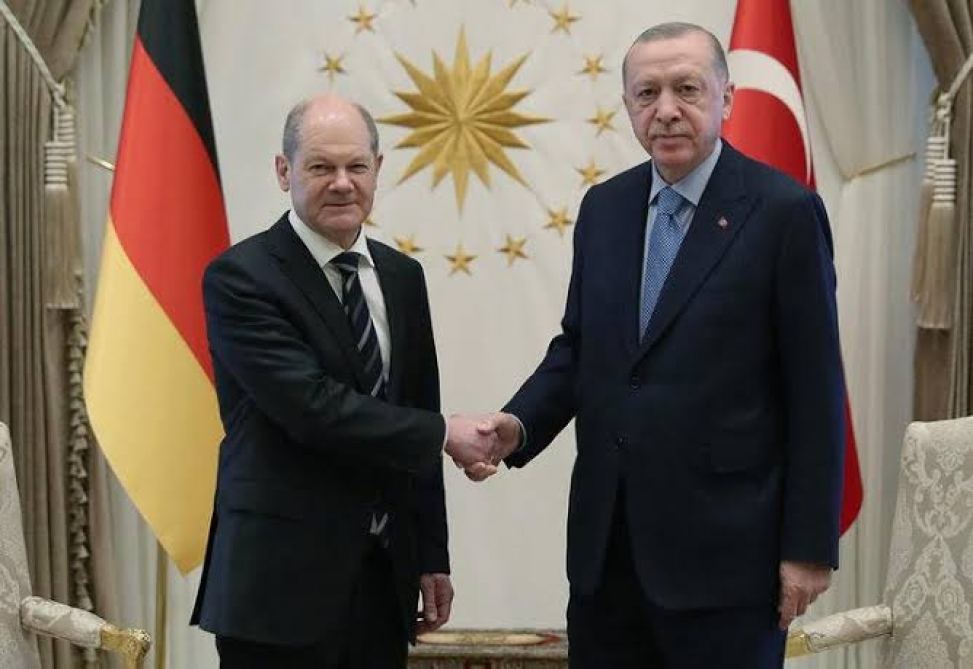Ankara expects Germany to return to its neutral stance on Türkiye-Greece relations, President Recep Tayyip Erdogan told German Chancellor Olaf Scholz over the phone, Trend reports citing Daily Sabah.
Erdogan and Scholz discussed the bilateral relations and regional relations in a phone call, Türkiye's Communications Directorate said in a statement.
Türkiye and Greece are at odds over a number of issues, including competing claims over jurisdiction in the Eastern Mediterranean, overlapping claims over their continental shelves, maritime boundaries, airspace, energy, the ethnically split island of Cyprus, the status of the islands in the Aegean Sea and migrants.
Türkiye, a NATO member for over 70 years, has complained of repeated provocative actions and rhetoric by Greece in the region in recent months, including arming islands near Turkish shores that are demilitarized under treaties, saying that such moves frustrate its good faith efforts for peace.
Türkiye and Greece will resolve all issues related to the Eastern Mediterranean through dialogue, German Chancellor Scholz said in Athens on Thursday.
"Good neighborly relations, with Türkiye, for example, are of significance not just for both countries, but for all of Europe and trans-Atlantic relations," he said during a joint news conference with Greek Prime Minister Kyriakos Mitsotakis.
Erdogan said that he attaches "special importance" to close dialogue developed with Scholz to strengthen bilateral relations in every field.
According to a recent study, more than half of the participants listed Germany as the most important partner of Türkiye among European Union countries. Germany, Italy and the United Kingdom ranked as the three most trusted European countries.
Türkiye-EU dialogue, negotiations to update the customs union and talks on Türkiye's EU accession should be revived, Erdogan stressed.
Türkiye-EU relations are marked by disputes on several issues, including tensions in the Eastern Mediterranean, Türkiye's role in Syria, the migrant crisis and the stalemate in Türkiye's accession process to join the bloc. However, Türkiye has recently reiterated that it is part of Europe and sees its future in the EU, adding that it will continue to work toward full membership. Ankara is calling to reenergize the accession process and update the Türkiye-EU Customs Union as it advocates for regular high-level dialogues, visa liberalization and further counterterrorism efforts.
Türkiye has the longest history with the union and the longest negotiation process. The country signed an association agreement with the EU's predecessor in 1964, the European Economic Community (EEC), which is usually regarded as a first step to eventually becoming a candidate. Applying for official candidacy in 1987, Türkiye had to wait until 1999 to be granted the status of a candidate country. For the start of the negotiations, however, Türkiye had to wait for another six years, until 2005, a uniquely long process compared with other candidates. In recent years, the accession process seems stalled.






